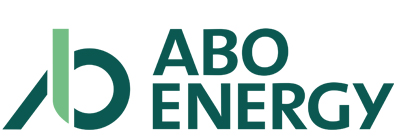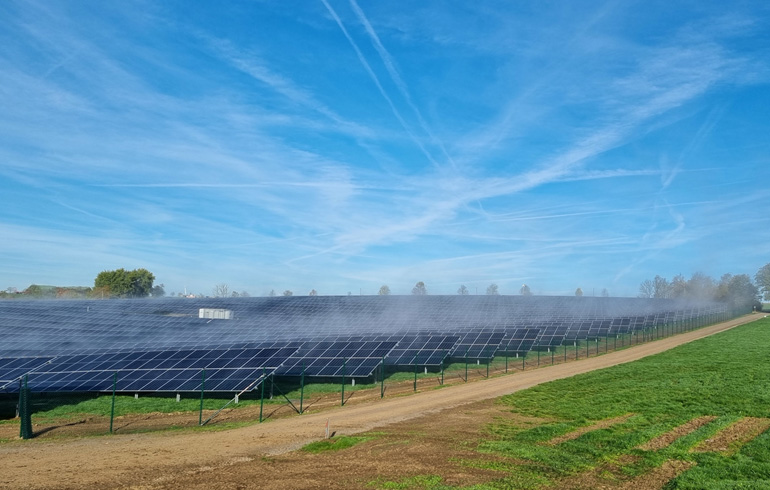(Wiesbaden, 14. February 2023) In the southwest of Germany, ABO Wind has commissioned its first hybrid energy projects. The most recent addition is a photovoltaic plant combined with a battery energy storage system (BESS) in the municipality of Lahr, Rhineland-Palatinate. The project had been awarded a tariff in the first so-called innovation tender by the German Federal Network Agency in autumn of 2020. The power output of the photovoltaic system is 4.27 Megawatt peak (MWp) and that of the battery is 1.5 Megawatt (MW) with a corresponding storage capacity of 2.2 megawatt hours (MWh).
The hybrid energy project was built in the immediate vicinity of a wind turbine on land belonging to the municipality of Lahr. ABO Wind had already commissioned the wind turbine in 2016 and sold it to SOLIX energy cooperative. "After the trusting cooperation, we have remained in close contact with the municipality. Lahr is very open-minded towards renewable energies. That's why we were able to swiftly implement this lighthouse project combining photovoltaics and battery storage," says Dr Thomas Treiling, ABO Wind’s Division Manager of Wind and Solar Project Development Germany.
The first German ABO Wind innovation project had already been connected to the grid in July 2022 in Wahlheim, next to another ABO Wind turbine. ABO Wind has since sold both hybrid projects, Lahr and Wahlheim, together with the Aulendorf solar farm, to the utility Stadtwerke Tübingen.
Both batteries charge electricity from the solar plants when needed, for example when the sun is at its zenith, and release it when needed. In this way, more electricity from renewables can be integrated into the system. To receive the innovation tariff, however, the storage systems must not draw electricity from the grid when it is overloaded. "This is where the legislator should make adjustments," comments Dr Julia Badeda, Division Manager of Hybrid Energy Systems and Storage. "In the current set-up, storage cannot unfold its full potential as a grid-supporting element. Today, it is already possible to differentiate which share of the electricity was generated and stored from renewable sources. Therefore, the regulation should not be an obstacle to an economically sensible use of storage systems. In addition to adjusting the innovation tender regulation, a return to the fixed tariff model is essential to fill future tender volumes again." The unattractiveness of the 2022 amendments was most recently reflected in the very low participation in the latest tender in December, with only one bid submitted in this category.
Download press photo



















